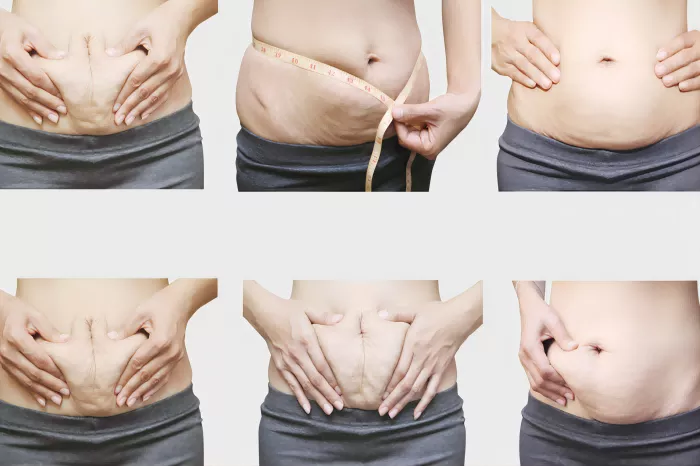Postpartum weight loss is a significant concern for many new mothers. Understanding the process, including the impact of the first postpartum period, can help women manage their expectations and health goals. This article provides a comprehensive guide on postpartum weight loss, focusing on the changes that occur after the first postpartum period.
Postpartum weight loss is a journey influenced by various factors, including hormonal changes, breastfeeding, diet, and exercise. One crucial milestone in this journey is the first postpartum period. This article will explore whether women lose weight after their first postpartum period and provide practical tips for effective weight loss during the postpartum period.
Understanding Postpartum Weight Loss
Hormonal Changes
After childbirth, a woman’s body undergoes significant hormonal shifts. The levels of pregnancy hormones such as estrogen and progesterone drop, while prolactin levels rise if the mother is breastfeeding. These hormonal changes can affect weight retention and loss.
Breastfeeding and Weight Loss
Breastfeeding can contribute to weight loss. It burns extra calories, which can help mothers shed pregnancy pounds. However, the rate of weight loss varies among individuals.
Diet and Nutrition
A balanced diet is crucial for postpartum weight loss. Consuming nutrient-rich foods supports recovery and provides the energy needed for caring for a newborn. It’s important to focus on whole foods, including fruits, vegetables, lean proteins, and whole grains.
Exercise and Physical Activity
Regular physical activity aids in weight loss and improves overall health. Postpartum exercise should be gradual, starting with light activities like walking and gradually increasing intensity as the body heals.
The First Postpartum Period
What to Expect
The first postpartum period can vary widely among women. Some may experience it within a few weeks after childbirth, while for others, it may take months. The return of menstruation can be influenced by factors such as breastfeeding and individual hormonal changes.
Hormonal Reset
The return of the menstrual cycle signals a hormonal reset. This change can affect appetite, energy levels, and mood, which in turn can influence weight loss efforts.
Weight Loss After the First Postpartum Period
While the first postpartum period is a sign that the body is returning to its pre-pregnancy state, it does not necessarily lead to immediate weight loss. However, it can indicate that the body is stabilizing hormonally, which may facilitate weight loss over time.
Factors Influencing Postpartum Weight Loss
Breastfeeding Intensity
Exclusive breastfeeding burns more calories than partial breastfeeding or formula feeding. The more a mother breastfeeds, the more calories she expends, which can aid in weight loss.
Physical Activity Level
Engaging in regular physical activity helps burn calories and build muscle. Even simple activities like walking with the baby or doing postpartum yoga can make a significant difference.
Sleep Patterns
Sleep deprivation is common for new mothers and can hinder weight loss. Lack of sleep affects metabolism and can increase cravings for unhealthy foods.
Stress Levels
High stress levels can lead to emotional eating and weight gain. Finding stress management techniques, such as meditation or gentle exercise, can help.
Diet Quality
Eating a balanced diet rich in nutrients supports weight loss and overall health. Avoiding processed foods, sugary snacks, and excessive caffeine can also contribute to better weight management.
Practical Tips for Postpartum Weight Loss
Focus on Nutrition
Eat a variety of fruits and vegetables.
Include lean proteins like chicken, fish, and legumes.
Opt for whole grains instead of refined grains.
Stay hydrated by drinking plenty of water.
Gradual Exercise
Start with light activities like walking or stretching.
Gradually increase the intensity of workouts.
Include strength training to build muscle mass.
Consider joining a postpartum exercise class for motivation.
Adequate Sleep
Nap when the baby naps to catch up on sleep.
Create a calming bedtime routine.
Ask for help from family or friends to get more rest.
Stress Management
Practice relaxation techniques like deep breathing or meditation.
Engage in activities that you enjoy and that relax you.
Talk to a therapist or join a support group if needed.
Monitor Progress
Keep a food diary to track eating habits.
Use a fitness tracker to monitor physical activity.
Set realistic weight loss goals and celebrate small achievements.
See Also: Which Exercise Is Best For Weight Loss After C Section
Common Challenges and Solutions
Lack of Time
Caring for a newborn is time-consuming. Finding time for self-care can be challenging. Incorporate short bursts of exercise into daily routines and prepare simple, healthy meals.
Emotional Eating
Postpartum emotions can lead to eating for comfort. Recognize emotional triggers and find alternative coping mechanisms, such as talking to a friend or engaging in a hobby.
Plateaus in Weight Loss
Weight loss may slow down or plateau. This is normal. Adjusting diet and exercise routines can help overcome plateaus. Consult a healthcare provider for personalized advice.
When to Seek Professional Help
Persistent Weight Retention
If weight retention persists despite efforts, consult a healthcare provider. Underlying medical conditions, such as thyroid issues, could be affecting weight loss.
Mental Health Concerns
Postpartum depression and anxiety are common. Seeking help from a mental health professional can improve overall well-being and support weight loss efforts.
Nutritional Guidance
A registered dietitian can provide personalized nutritional advice. They can help create a balanced meal plan that supports weight loss and overall health.
Conclusion
Postpartum weight loss is a gradual process influenced by various factors. The first postpartum period marks a significant milestone but does not guarantee immediate weight loss. By focusing on balanced nutrition, regular physical activity, adequate sleep, and stress management, new mothers can support their weight loss journey. Consulting healthcare professionals for personalized advice can further enhance success.
Weight loss after childbirth is unique for every woman. Patience, self-care, and realistic expectations are key to achieving and maintaining a healthy weight postpartum.


